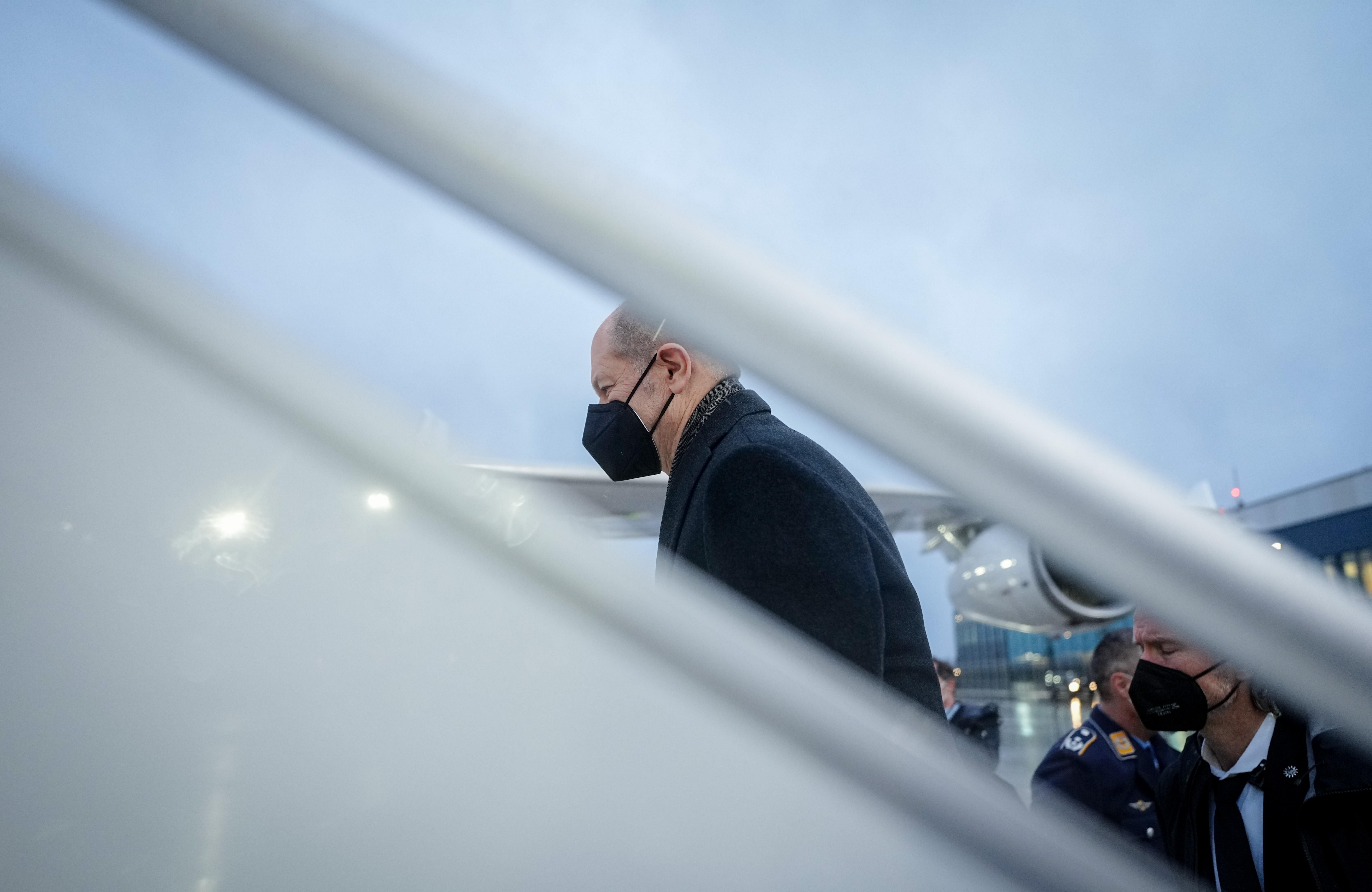On Monday, President Joe Biden will meet with German Chancellor Olaf Scholz at the White House. While Angela Merkel’s successor has only been at the helm since December, the meeting still seems long overdue.
In just two months, Scholz’s wavering stance on the Russia-Ukraine crisis has raised questions about Germany’s commitment to international security and its transatlantic partners. The chancellor will try to repair the damage.
To be fair, he wasn’t elected on a robust foreign policy platform. Scholz campaigned on promises to boost economic growth after years of stagnation under Merkel. German foreign policy, meanwhile, was meant to remain as it was with his predecessor: focused mainly on European integration and bolstering alliances.
Yet, in the face of Russia’s massive military buildup along the Ukrainian border, Scholz is being forced to come up with a clear position on European security, on sanctioning Moscow, and on German energy. He’s in a tricky spot with his fragile “traffic light” coalition, as both the leftist Greens and the centrist FDP party are skeptical of Russia. Scholz's own Social Democratic Party is split between Russia doves and hawks.
Meanwhile, critics wonder where the “invisible man” of Berlin has been, questioning whether Scholz has what it takes to navigate the first international security crisis of the post-Merkel era. They might have a point.
When Germany offered to send helmets instead of weapons to Ukraine last month, Kyiv’s mayor taunted Berlin about whether pillows would follow. Last week, a memo from the German ambassador to Washington started with “Germany, we have a problem” and warned that many US Republicans think Scholz is “in bed with Putin.”
Berlin has been unclear on Nord Stream 2. For Merkel, the $11 billion Russian natural gas pipeline was a commercial project to heat millions of German homes and power Germany’s influential industrial giants, but critics say it’ll only increase Berlin's dependence on Russian gas. Scholz has since clarified that Nord Stream 2 would be suspended as part of Western sanctions if Russia invades Ukraine, but influential German voices want to see the pipeline open. What’s more, how Germany would react to something short of a full invasion remains unclear.
Scholz is going to Washington to rebuild trust. But Biden needs to know how much he can count on Germany’s friendship — whatever Putin’s path. A week later, the German chancellor’s diplomatic dance will continue … at the Kremlin.